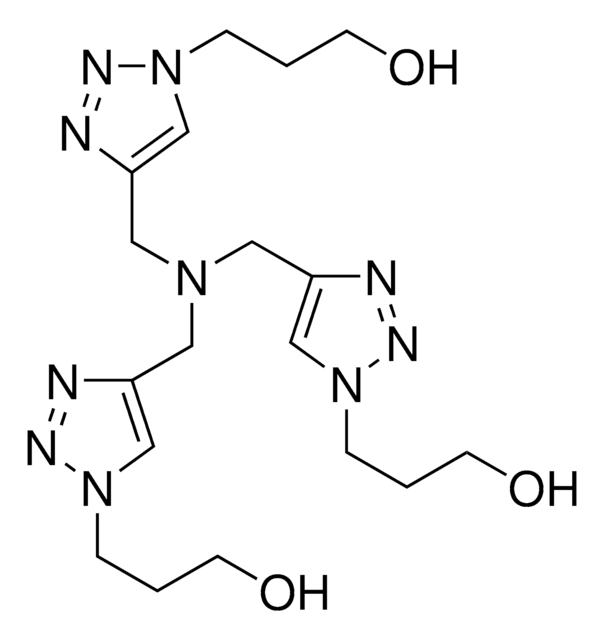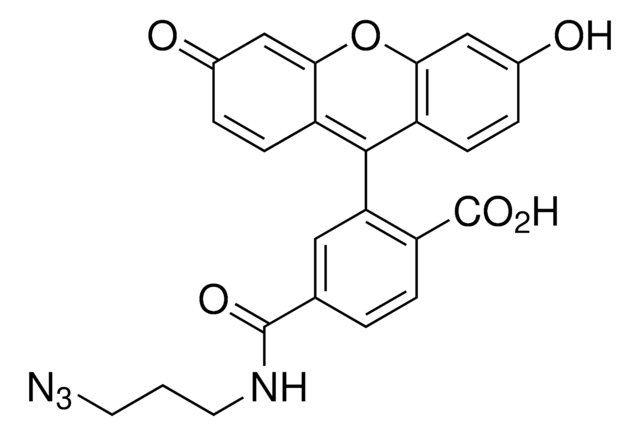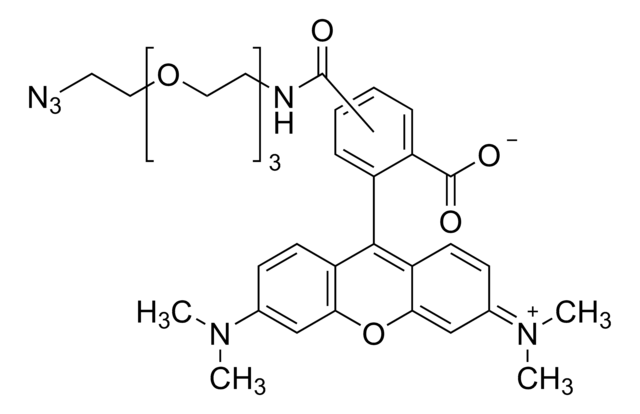900912
Biotin picolyl azide
Synonym(s):
Biotin-functionalized Picolyl Azide
About This Item
Recommended Products
form
powder or crystals
Quality Level
reaction suitability
reaction type: click chemistry
storage temp.
−20°C
Application
Automate your Biotin tagging with Synple Automated Synthesis Platform (SYNPLE-SC002)
related product
Storage Class Code
11 - Combustible Solids
WGK
WGK 3
Flash Point(F)
Not applicable
Flash Point(C)
Not applicable
Certificates of Analysis (COA)
Search for Certificates of Analysis (COA) by entering the products Lot/Batch Number. Lot and Batch Numbers can be found on a product’s label following the words ‘Lot’ or ‘Batch’.
Already Own This Product?
Find documentation for the products that you have recently purchased in the Document Library.
Customers Also Viewed
Articles
Choosing the right crosslinker for your biochemical or bioconjugation research can be challenging. Our selection guide can help you find the perfect match for your applications.
Our team of scientists has experience in all areas of research including Life Science, Material Science, Chemical Synthesis, Chromatography, Analytical and many others.
Contact Technical Service












![Tris[(1-benzyl-1H-1,2,3-triazol-4-yl)methyl]amine 97%](/deepweb/assets/sigmaaldrich/product/structures/179/695/86a721c8-2a4c-4e4f-bc36-6276ce7a941f/640/86a721c8-2a4c-4e4f-bc36-6276ce7a941f.png)


